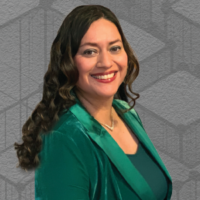
Baking—one of my favorite things to do, especially toward the end of the year. The aromas of cookies, bread, cinnamon rolls and pies all evoke pleasant memories of times, places and people. Why do I love to bake? It is an escape from the worries and troubles I may be facing and at the end of a baking session, I have an immediate reward. A slice of warm bread to eat, a cookie to devour or baked goods to share with family and friends. In addition, it is soothing to know that most recipes for baked goods call for similar ingredients. Usually you need flour, sugar (or some type of sweetener), eggs, baking soda or powder and milk. By using these base ingredients and adding the needed flare required by different recipes, you can cook a multitude of baked concoctions to last for days. Unfortunately, the way we bake is similar to what criminals use to create synthetic identities.
The cover article “Shake, Bake and Launder” describes the process criminals apply to create synthetic identities. Similar to baking, the criminal will use key ingredients such as names, social security numbers, birth dates and addresses as the base for the synthetic identity. Once these ingredients are mixed, they add other “ingredients” to differentiate the identity to make it unique. When the mixing or shaking is complete, the criminal watches as their synthetic identity bakes to build a more substantial identity. Why is this important to the financial crime prevention professional? Read more within the article to discover details on how to detect and combat this growing threat.
In my nearly 15 years working for ACAMS, I have met thousands of our members. I am extremely grateful for your efforts and the efforts of other financial crime prevention professionals. The December-February ACAMS Today editions always highlight the year’s award winners. This edition is no different as we sing praises to our 2020 award winners in the article “2020 Visions” and also to our AML Professionals of the Month in “AML’s decorated dozen.” I would like to whole-heartedly congratulate these professionals for their accomplishments in advancing the prevention of financial crime worldwide. I would be remiss if I did not also thank the entire membership who—especially during a difficult year—have continued to press forward and work toward our goal of eradicating financial crime.
While you are making end-of-the-year plans or deciding how to begin 2021, I hope you will take the opportunity to read these additional noteworthy articles: “Lessons in Regulation for the Art Industry,” “Practical Machine Learning: Advanced Techniques to Gain Alert Efficiencies” and “Best Practices for Corporate Monitorship.”
As we end this turbulent year and begin anew in 2021, I hope we will take the time to bake a favorite treat to share, to eat or to simply enjoy! Wishing everyone Happy Holidays and a triumphant New Year!
Karla Monterrosa-Yancey, CAMS
Editor-in-Chief
Follow us on Twitter: @acamstoday










